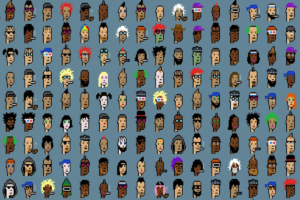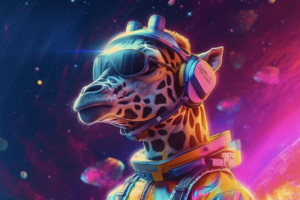The swift improvements in artificial intelligence (AI) and automation technologies have provoked acute discourse about the future of work. You have certainly come across these debates online. The above technologies will change our lives by reshaping industries, restructuring job roles, and transforming the labor force. As these technologies progress, it becomes necessary to comprehend their ramifications on various industries and get ready for the opportunities and challenges they bring to humankind. Casinos like https://vulkanvegas.com/bg-bg are some of the industries that are being transformed.
In this article, we explore how AI and automation will transform work. We will briefly examine these technologies’ current state and adoption and go ahead to evaluate their prospective consequences on diverse industries, such as manufacturing, healthcare, finance, transportation, logistics, and education.
What Is Artificial Intelligence and Automation?
Before we discuss the impact of this technology on the future of work, let’s first describe a basic definition of these terms. Artificial Intelligence is an imitation of human intelligence using powerful computers, to perform activities that usually require human intelligence, such as decision-making, problem-solving, and natural language processing. Automation is using technology to automate tasks that are usually hand-operated or recurrent, eliminating or reducing the necessity of human involvement.
Types of AI and Automation Technology
AI and automation solutions include a broad variety of technologies.
- Machine learning is a subclass of Artificial intelligence that enables computer devices to learn from data fed into them to enhance performance without additional human programming.
- Natural language processing is a technology that allows machines to undersand and decode human language, enabling applications such as language translation and voice assistants to be able to work instantly.
- Robotics is a central ingredient of automation, it involves the design and deployment of mechanical devices able to autonomously perform tasks with reduced or no human involvement.
- Other technologies in the space include computer vision, speech recognition, and expert systems.
What Is the Impact of AI and Automation on Industries
While adoption rates differ greatly across various sectors, it is apparent that these technologies are forever changing how we work now and in the future. Organizations are implementing these technologies in different ways either to optimize their operations, gain a competitive advantage, or maximize workplace productivity.
Machine learning and natural language processing solutions are becoming more commonplace in customer service through automated chatbots and intelligent assistants, while in decision-making, machine learning algorithms are being implemented.
Robotics in Manufacturing
For a long time, the manufacturing industry has been at the forefront of implementing automation solutions. Companies have always been ingenious in finding and implementing ways to produce their goods for the lowest cost and at the fastest pace. Production processes have evolved tremendously through the combination of AI and Robotics, leading to increased accuracy, productivity, and efficiency in the factory. We now have Automated assembly lines with robotic arms and automated transportation in use, streamlining operations while saving costs.
Although robotization provides great benefits to the manufacturing sector, it also raises concerns due to the fact that it displaces jobs. Certain repetitive and low-skilled job roles will become obsolete. But at the same time mechanization creates new possibilities for workers to improve their skills or acquire new skills.
Artificial Intelligence and Robotic Applications in Healthcare
Healthcare is undergoing a great revolution in how it works with the advancement and implementation of AI in the industry. Computers have the capacity to do analysis of large medical datasets and give correct diagnoses while helping in planning treatment. When you get sick, you can now receive personalized support from chatbots powered by NLP or Virtual nurses while you are wearing smart watches and other monitoring devices.
Medical procedures are also being transformed through robotic surgeries and automated lab tests. Robotic surgery systems powered by Artificial intelligence are being developed and tested. They are more precise and less invasive, leading to improved patient outcomes. Machine learning is also being employed to accurately interpret medical images like X-rays and MRIs helping radiologists in diagnosis.
AI and Automation in Finance and Banking
Banking and finance processes, customer experiences, and risk mitigation are being optimized through the use of AI and computerization. Like the industries above, Virtual assistants and NLP-powered chatbots are being applied to personalize customer support by improving response times. Fraud detection and risk assessment used to involve a lot of human analysis, but now, it is done by automated systems that are more accurate. The industry has implemented machine learning algorithms that do financial data analysis, identifying trends and patterns and assisting investment decisions.
Implementation of these technologies in these industries has led to increasing demand for professionals skilled in data analysis, designing algorithms, and managing risk. Professionals are more empowered with better information that has been assessed faster than they would have without AI enabling them to make better decisions.
Challenges and Opportunities
A key concern of automation is job displacement. In several industries, the use of Artificial Intelligence to automate operations means that many people will lose their jobs to machines. Though, it also may create new opportunities through a shift in skill sets.
There are also some ethical effects of these technologies which cannot be ignored. Issues caused by algorithmic bias and data privacy are becoming more common as the technologies are being implemented. Frameworks for the ethical use of AI systems are essential to ensure fairness, accountability, and transparency.
We must accept that Artificial Intelligence and automation are going nowhere and we must harness their potential while dealing with the challenges they come with. All stakeholders must take positive steps to ensure this happens.
Author
-

The views and opinions expressed in this guest post are solely those of the author, and do not necessarily reflect the official policy or position of NFT News Today.




